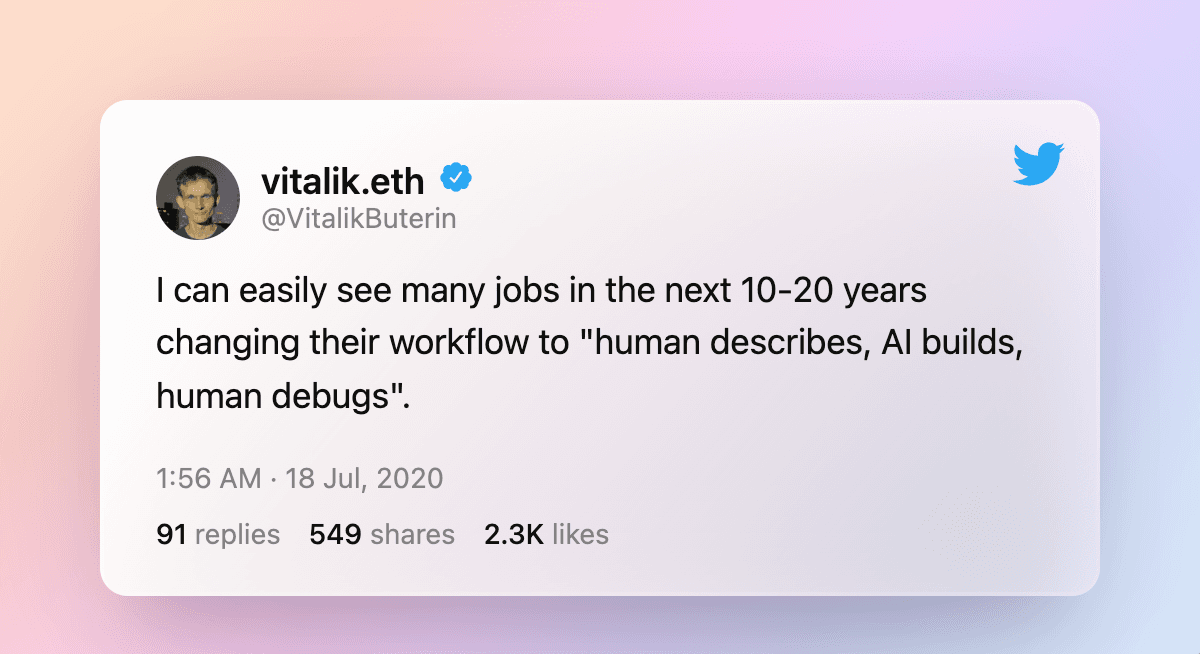The experience with ChatGPT these days: this thing is impressive, but the people who can use it well are even more impressive.
It's like the tools we use in our daily lives. Some people may not know how to use them, some people only use them to complete simple tasks, but some people can do amazing things with them. The latter belongs to the people who can use ChatGPT well.
No matter the era or the tools we face, these three types of people will always exist.
In 2020, Vitalik said: "I can easily see many jobs in the next 10-20 years changing their workflow to 'human describes, AI builds, human debugs'."

He mentioned two points, input and debugging, which I believe are the two difficult points. First is the input. If you're just playing around, you can input anything and it will give you decent feedback. But if you want to truly obtain or even create something, the requirements for input are relatively high. For example, describing your problem clearly and understanding certain boundaries, and so on. Second is debugging. Without a certain knowledge base, you may not even know where the problem lies or how to adjust it.
To make an inappropriate analogy: the same coloring picture, with someone who has aesthetic sense and someone who doesn't, the final result will surely be like night and day.
In addition, there is also the understanding of boundaries: what can AI do and what can't it do? Only by recognizing this can you better use the tool. It's like someone asking ChatGPT where the 2030 World Cup will be held right off the bat. Of course, it can't answer that. Even if you ask it about the weather in Beijing today, it can only respond with an apology. Does this mean it's rubbish? Of course not, because it doesn't support internet access and predictions, so it can't provide an answer. However, if you ask it to come up with a planning proposal, it can instantly list several good directions. If you ask it to edit an email, it can generate a well-reasoned and appropriately worded email within seconds. Therefore, we need to understand the boundaries of the tool and its limitations.
Of course, in the face of its power, we don't need to underestimate ourselves, nor should we be overconfident. It may not replace anyone, but it will definitely create something new. This new thing could be a new service, new interactions, new positions, or even a new world. Let's watch and wait, and see what unfolds.